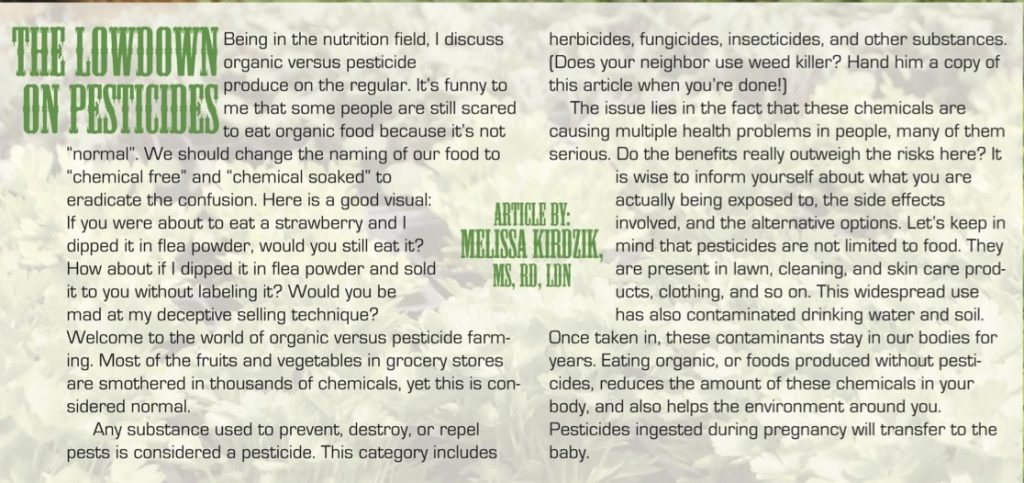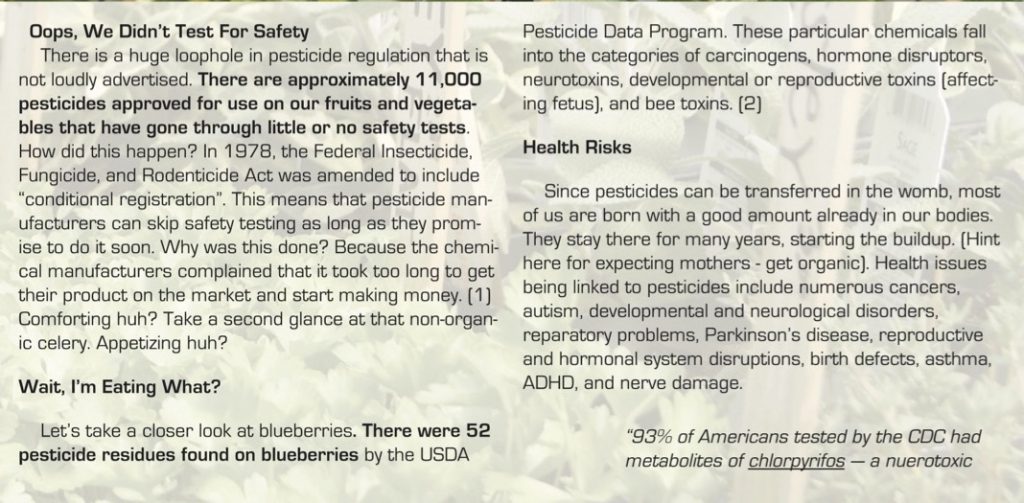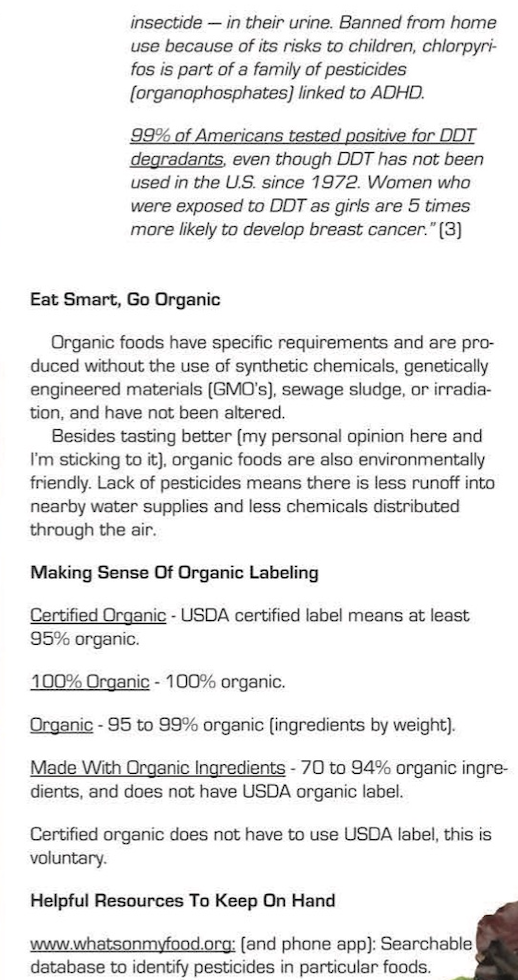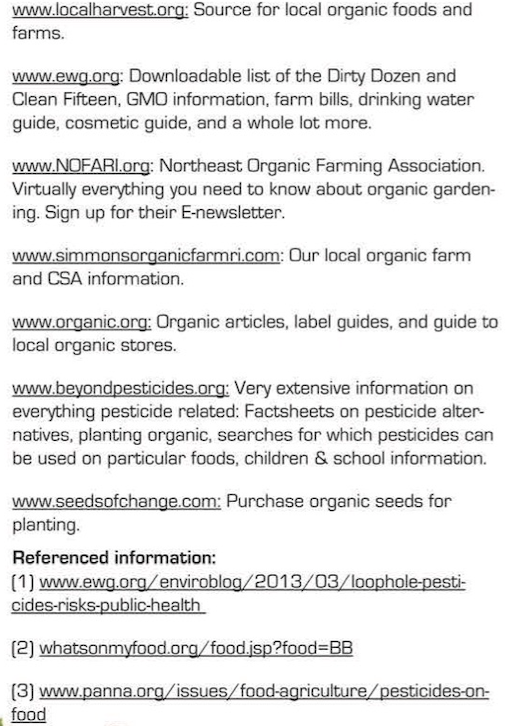
Salad with a side of piperonyl butoxide: Making the move to pesticide-free
Spring is a time of renewal of mind, body, spirit and environment. Many of us greet the new season by renewing our garden spaces in preparation for the growing season. Spring brings an abundance of fresh bitter greens at this time of year. The body craves these nutrients as it begins to shed winter fat. Becoming aware of pesticides, how they affect the body, and how to avoid them, is a timely focus for better health. This article, by registered dietician Melissa Kirdzik, was first published in Newport Naked. In it, Melissa explains the pervasive use of pesticides in our environment and why organic versus pesticide farming can be better for both your health and the environment.
Making the move to pesticide-free
By Melissa Kirdzik for Eat to Live
If you were about to eat a strawberry and I dipped it in flea powder, would you still eat it? How about if I dipped it in flea powder and sold it to you without labeling it? Would you be mad at my deceptive selling technique? Most grocery store foods are smothered in thousands of chemicals, yet this is considered normal.
Any substance used to prevent, destroy or repel pests is considered a pesticide. This category includes herbicides, fungicides and other substances. Inform yourself about what you are actually being exposed to, the side effects involved, and the alternative options. Pesticides are not limited to food. They are present in lawn, cleaning and skin care products, clothing and so on. Once taken in, these contaminants stay in our bodies for years. Eating organic foods produced without pesticides reduces the amount of these chemicals in your body. It also helps the environment around you.
Why organic versus pesticide farming
In 1978 the Federal Insecticide, Fungicide and Rodenticide Act was amended to include “conditional registration.” This means that pesticide manufacturers can skip testing as long as they promise to do it soon. As a result, there are approximately 11,000 pesticides approved for use on our fruits and vegetables that have gone through little or no safety tests. Health issues being linked to pesticides include numerous cancers, developmental and neurological disorders, respiratory problems, Parkinson’s Disease, reproductive and hormonal system disruptions, asthma, ADHD and more.
Scroll to continue reading:








